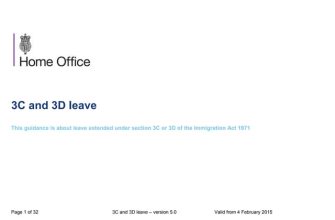Dismissing an employee is a challenging task that requires careful consideration and a thorough understanding of the legal implications. It’s crucial to ensure that the dismissal is fair and justifiable to avoid potential claims of unfair dismissal. This article will explore the 5 fair reasons for dismissal, providing a comprehensive guide to help employers navigate this complex process. We will also delve into what constitutes serious misconduct fair work, the grounds for dismissal, and how to avoid unfair dismissal claims.
Understanding Dismissal
Before we delve into the 5 fair reasons for dismissal, it’s essential to understand what dismissal means in a job context. Dismissal, also referred to as sacking or terminating an employee, is the act of ending an employee’s contract of employment. This can be initiated by the employer for various reasons, including poor performance, misconduct, or redundancy. However, it’s crucial to ensure that the reasons for dismissal of an employee are fair and lawful to avoid potential legal repercussions.
1. Capability or Qualifications
One of the 5 fair reasons for dismissal is the employee’s capability or qualifications. This refers to the employee’s ability to perform their job duties effectively. If an employee consistently fails to meet performance standards or lacks the necessary skills or qualifications for their role, it may be fair grounds for dismissal. However, before dismissing an employee for this reason, it’s crucial to provide adequate training, support, and opportunities for improvement.
- Consistent poor performance despite support and training
- Lack of necessary skills or qualifications
2. Conduct
Another fair reason for dismissing an employee is misconduct. This can range from minor issues, such as persistent lateness, to serious misconduct fair work, such as theft, violence, or gross negligence. It’s important to have a clear code of conduct in place and ensure that all employees are aware of the expected standards of behavior. Serious misconduct can result in instant dismissal, but it’s essential to conduct a thorough investigation before making a decision.
- Persistent lateness or unauthorised absence
- Violating company policies or code of conduct
- Serious misconduct such as theft, violence, or gross negligence
3. Redundancy
Redundancy is another of the 5 fair reasons for dismissal. This occurs when an employee’s job no longer exists, often due to changes in the company’s structure, a decrease in workload, or the closure of the business. It’s important to note that redundancy should be a last resort and that employers should explore all possible alternatives before deciding to dismiss an employee on these grounds.
- Changes in the company’s structure
- Decrease in workload
- Closure of the business
4. Statutory Restriction
A statutory restriction is a legal reason that prevents the employee from doing their job. This could be due to the loss of a necessary license or qualification, or a change in immigration status that affects the employee’s right to work. Dismissing an employee for a statutory restriction is fair, provided that there are no reasonable adjustments that could be made to accommodate the employee.
- Loss of a necessary license or qualification
- Change in immigration status affecting the right to work
5. Some Other Substantial Reason (SOSR)
The final fair reason for dismissal is somewhat of a catch-all category, known as ‘some other substantial reason’ (SOSR). This could include a variety of situations, such as a breakdown in the working relationship, a refusal to accept changes to terms and conditions of employment, or a conflict of interest. It’s crucial to ensure that the reason is substantial and that dismissal is a reasonable response to the situation.
- Breakdown in the working relationship
- Refusal to accept changes to terms and conditions of employment
- Conflict of interest
Avoiding Unfair Dismissal Claims
Understanding the 5 fair reasons for dismissal is a crucial step in avoiding unfair dismissal claims. However, it’s also important to follow a fair and transparent process when dismissing an employee. This includes conducting a thorough investigation, providing the employee with an opportunity to respond to allegations, and considering any mitigating circumstances. It’s also advisable to seek legal advice to ensure that you are complying with all relevant laws and regulations.
In conclusion, dismissing an employee is a serious decision that should not be taken lightly. By understanding the 5 fair reasons for dismissal and following a fair process, employers can ensure that they are acting lawfully and ethically, thereby reducing the risk of unfair dismissal claims.






